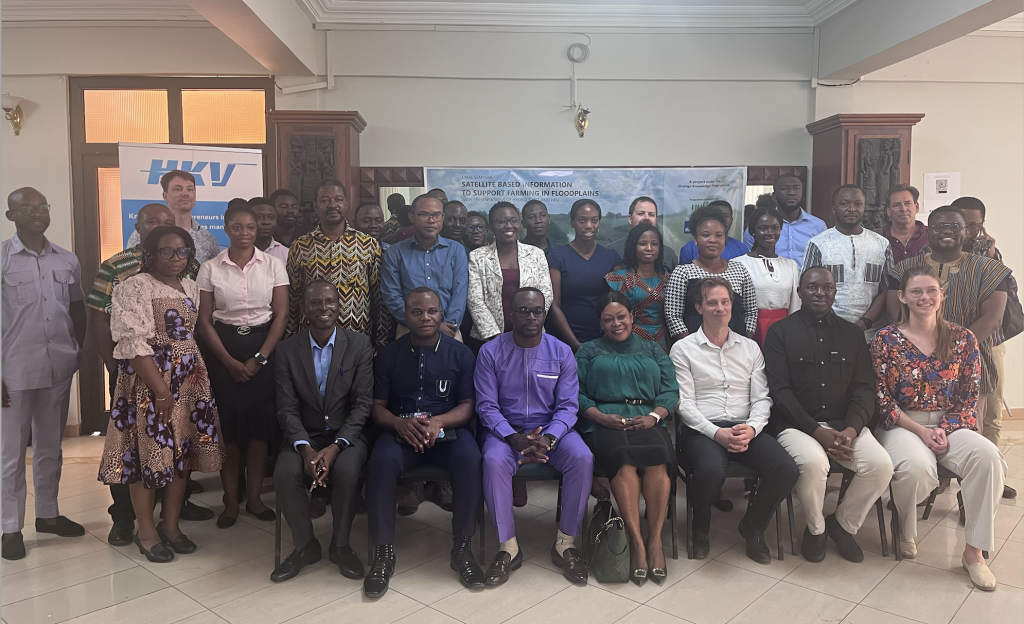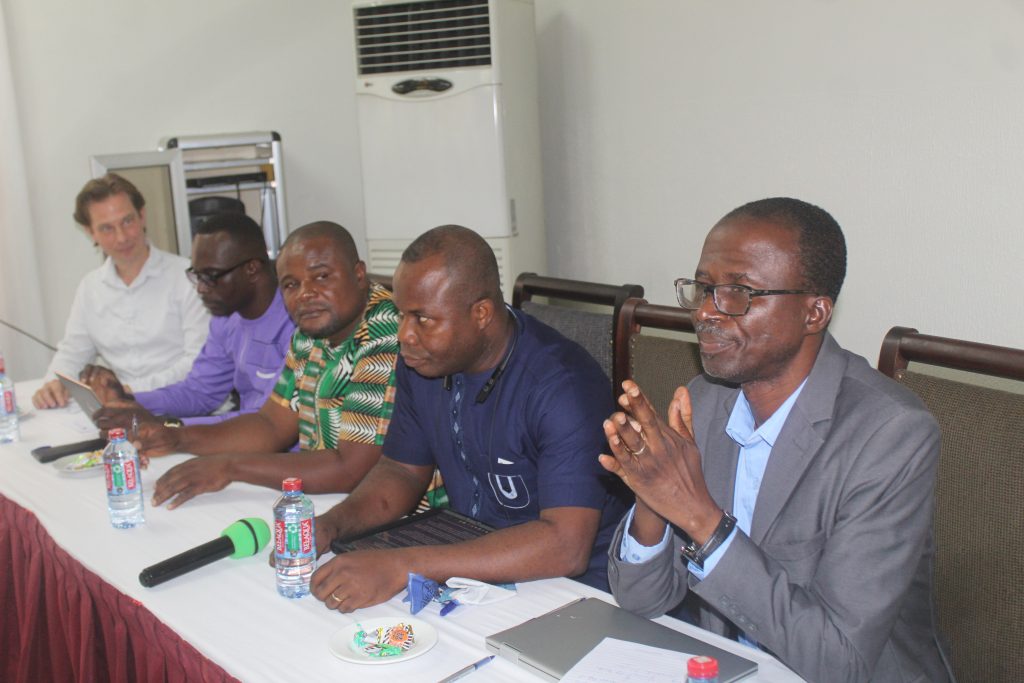Accra, March 13, GNA Mr. Job Udo, a consultant at HKV, a firm focused on creating a safe and sustainable environment, is advising farmers, especially those along major river bodies, to take advantage of moist and rich soils often left behind after floods to grow more crops, especially vegetables.
That, he said, would contribute to increasing the household income of farmers, ensuring food security, and improving their livelihoods amidst the shift in rainfall patterns and flooding—some manifestations of the climate crisis.
In some instances, the flood recession Agriculture sometimes uses the water from the rising floods to farm as well.

Mr Udo gave the advice at the end of a training for officials of the Ghana Meteorology Agency (GMet) and Ghana Hydrological Authority (GHA) on how to analyse satellite data to determine rainfall and flood onset, as well as planting days to inform farmers.
The five-day event, which was funded by Nuffic, also brought together other stakeholders to discuss the findings of the satellite-based information to support farmers in floodplains.

Based on the outcome of the GMet and GHA assessments using data from 2015 to 2023, agriculture extension officers would be able to advise farmers on the type of crop and seed varieties to cultivate.
He said that on a yearly basis, farmers along the Volta River lose their crops to floods, stressing that, “despite the challenge, not much has been done to take advantage of the opportunities, hence, our resolve to find solutions to it.”
Mr Udo said, per the analysis, “the growing period along White Volta floodplains differs a lot from north to south and inside floodplain areas.”
Mr Samuel Owusu Ansah, a principal meteorologist at the GMet, said flooding must not only be seen as a challenge but an opportunity to extend cropping season.
In the absence of irrigation facilities, he said flood recession agriculture could be used to enhance resilience and optimise resources.
Mr Busia Nambu Dawuni, Managing Director of Integrated Water and Agricultural Development, said the organisation had been practicing flood-recession agriculture and had enabled them to produce seeds and vegetables along the Sisiili River at Yagaba in the North East region.
“IWAD’s Farm grows seed crops such as maize, rice, soybeans, cowpeas, and groundnuts and tests sugarcane varieties. Since 2017, IWAD has been a consistent large local supplier of seeds to the government’s flagship programme, “Planting for Food and Jobs” (PFJ).”
He urged the government to support farmers with equipment to utilise water to irrigate their crops.
Madam Charlotte Norman, the Director of Climate Change and Disaster Risk Reduction at the National Disaster Management Organisation, said the government was working with stakeholders to secure an insurance scheme for smallholder farmers in the northern part of the country.
Under the package, compensation would be paid to farmers whose crops would be affected by long-dry spells and floods—some of the adverse effects of climate change.
GNA